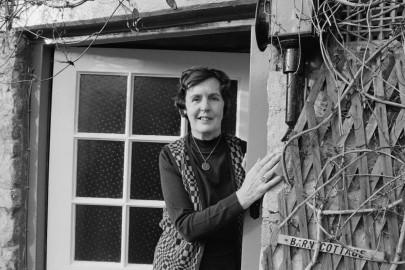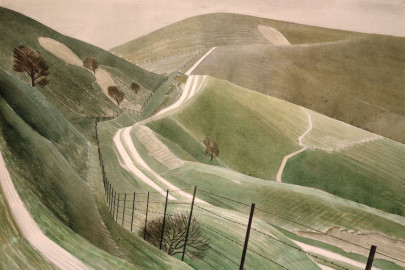Right, time for this 1p Book Review series to get ambitious. It was Gaw’s recent post on Cockney Cuisine – “lugubrious spoonfuls of silvery eel and golden jelly” and “suck[ing] on the odd piece of protuberant cartilage” that put me in mind of Ulysses, and particularly of our introduction to Leopold Bloom and his love of the, ah, tangy meats…
Mr Leopold Bloom ate with relish the inner organs of beasts and fowls. He liked thick giblet soup, nutty gizzards, a stuffed roast heart, liverslices fried with crustcrumbs, fried hencods’ roes. Most of all he liked grilled mutton kidneys which gave to his palate a fine tang of faintly scented urine.
Many people believe that Ulysses is a difficult book. It’s a long book certainly, but so was the last Harry Potter. And ‘difficulty’ is very much a matter of context: Ulysses is difficult compared to, say, Roald Dahl’s The BFG, granted; but next to The Critique of Pure Reason by Immanuel Kant, to take one example, it really is a cinch. To illustrate, here is a random quote from Kant:
If we thereupon proceed to hypostatise this idea of the sum of all reality, that is because we substitute dialectically for the distributive unity of the empirical employment of the understanding, the collective unity of experience as a whole; and then thinking this whole of appearance as one single thing that contains all empirical reality in itself; and then again, in turn, by means of the above-mentioned transcendental subreption, substituting for it the concept of a thing which stands at the source of the possibility of all things, and supplies the real conditions for their complete determination.
There are 668 more pages like that. Now, here’s a random quote from Ulysses:
In his broad bed nuncle Richie, pillowed and blanketed, extends over the hillock of his knees a sturdy forearm. Cleanchested.
The thing about Joyce is that you can choose a sentence at random from any of his books (except, of course, Finnegans Wake – which really is a difficult book) and know that it will be devoid of cliché but generally no more impenetrable than Shakespeare. Funny too; here’s another random sentence (surely a positive influence on our very own Frank Key?):
The figure seated on a large boulder at the foot of a round tower was that of a broadshouldered deepchested stronglimbed frankeyed redhaired freely freckled shaggybearded widemouthed largenosed longheaded deepvoiced barekneed brawnyhanded hariylegged ruddyfaced, sinewyarmed hero.
Anyway, rather than attempt to actually ‘review’ Ulysses (may as well try to dance about architecture, as Elvis Costello put it, referring to the futility of writing about music), I will instead offer my Top 5 Tips on how to successfully read Ulysses by James Joyce which, if followed carefully, will allow you to say, in company, that you have read Ulysses by James Joyce without technically lying:
1) Don’t bother trying to decipher every blasted line. Chances are there’ll be another line along any second that you’ll probably understand perfectly.
2) Don’t get bogged down in all the allegories, the wretched parallel with the Odyssey and the academic layers. You’ll soon be exhausted and miserable. Just read it through for entertainment, then go back if you want to know about all the puzzles etc. The Oxford World Classics 1922 edition has lots of excellent notes.
3) First time round, skip Chapter 3 (Proteus), and Chapter 14 (Oxen of the Sun). These are absolute gits, especially the latter. Better to go back to them at the end, when you’re more in the swing of things, than to let their obscurity frustrate you into giving up.
4) Be slightly drunk when reading.
5) Better yet, be slightly drunk on Guinness, in Dublin, when reading. And do it in an Irish accent. Enjoy!












Thanks Brit, it’s reviews like yours that enable me to avoid ever having to read Ullysses, as I can now simply tell people at dinner parties – “You simply must read Ullysses (as I did as a precocious 10 year old), I mean chapters 3 and 14 are absolute gits, especially the latter. Better to go back to them at the end, when you’re more in the swing of things, than to let their obscurity frustrate you into giving up!” and they will all believe me
Wise advice, I’m sure.
Once read, the ‘fine tang of faintly scented urine’ is a phrase that is certain to come to mind when one is considering kidneys for breakfast. I wonder what eating them regardless indicates?
I read The Dubliners and there were so many referred notes that I had to keep my thumb in place where the notes were at the back and I went to and fro but still lost the plot. Then I just read the notes, which were very readable, and then, afterwards, read the stories, and all was much clearer.
Kant’s words like two fried eggs on a teflon mind.
Splendid advice all Brit.
Yes read it first, don’t stress and if you get to that point where you read the same line 3 times then move on along to the next paragraph. Let it wash over you like ‘the snotgreen sea. The scrotumtightening sea.’
Most of all enjoy it. You aren’t trying to make an acedemic career on the back of it. Enjoy the humour, the wonderful characters and the broadshouldered deepchested stronglimbed frankeyed redhaired freely freckled shaggybearded widemouthed largenosed longheaded deepvoiced barekneed brawnyhanded hairylegged ruddyfaced, sinewyarmed language.
Afterwards you can go back to the notes and the Odyssey parallels and say ‘Oh yeah I knew that!’
And next time you get to Dublin make the trip to Sandycove on the DART and read the opening chapter atop the Martello Tower. They won’t let you drink Guiness up there but theres a nice pub that does a Joycean menu in the village. And yes, there are kidneys!
You can also get a gorgonzolla sandwich at Davy Byrnes but the wine-bar ambience just doesn’t cut the mustard.
And next? “How to love ‘The Life and Opinions of Tristram Shandy, Gentleman’ even if your Latin and French are not of the best.”
If you fancy writing one for Tristram Shandy, Banished, send it along to editorial@thedabbler.co.uk
Good stuff. The Guinness may help one’s pronunciation of “seesoo, hrss, rsseeiss, ooos” from chapter 3. I remember hearing Senator David Norris describe this as being precisely the sound of waves breaking on Sandymount Strand, if pronounced correctly of course. Senator Norris is a Joycean scholar and is running for president over here. I wonder if he could make Bloomsday a national holiday… would have to ask the IMF for the day off..
Blimey. Joycean scholars are all very well, but you wouldn’t want to put one in charge of the country, would you?
… whoops Bloomsday
Alas unlike Joyce, the Wikipedia and indeed the entire interweb address system, is NOT a friend to impressionistic language.
Don’t ya hate it when that happens?
indeed … I often find myself stymied by a slash..!
Very good stuff, Brit. Brave, even. Ulysses gave me 1000 slang citations but someone else, now perhaps unsurprisingly a prominent young academic and poetry reviewer, read it for me. I don’t know whether this works for Ulysses, but I have a friend whose party piece is to recite (no, not from memory) great chunks of Finnegans Wake and in so doing renders what is a fiendishly difficult book something quite wonderful. Not sure about accessible, but definitely wonderful. The fact that all concerned – audience and speaker – tend to be drunk at the point of delivery may, of course, assist in the process.
I have a marvellous little oddity somewhere in my vinyl collection. When John Cage was working on his Finnegans Wake piece Roaratorio he appeared at the Nova Convention in NYC and read both his permutations and the first few pages of the real thing. And having someone read it to you does bring out the music of the thing, something the mind rebels against when having to read it yourself.
Indeed here it is on UbuWeb
http://ubumexico.centro.org.mx/sound/dial_a_poem_poets/nova/Nova-Convention_12_cage.mp3
I love his introduction: ‘One of the books I’ve always loved but never read…’
Remarkable. Maybe it was always meant to be read aloud.
I gave up trying to read Finnegan’s Wake after a few pages. Then later I bought a Naxos audiobook, thinking that hearing it would bring the poetry to life. It did in a way. But I gave up on it after half an hour.
Here’s a how-de-do, the book was a must read in the sixties, if you didn’t, Luddite you were. Up pops the movie, complete with the delectable Barbara Jefford and that bloke with the eyebrows, black and white, Dublin, off beat, damp Sunday afternoonish kind of flick, complete with an early f word. More enjoyable than the book or at least less hard toil.
Saw it as a monologue on a West End stage in the sixties, can’t for the life of me remember who, which or exactly when, blame the sax, dregs and bacon roll if you like
Alfie penned a good ‘un
Ulysses…
It little profits that an idle king,
By this still hearth, among these barren crags,
Match’d with an aged wife, I mete and dole
Unequal laws unto a savage race,
That hoard, and sleep, and feed, and know not me.
I cannot rest from travel: I will drink
Life to the lees: All times I have enjoy’d
Greatly, have suffer’d greatly, both with those
That loved me, and alone, on shore, and when
Thro’ scudding drifts the rainy Hyades
Vext the dim sea: I am become a name;
For always roaming with a hungry heart
Much have I seen and known; cities of men
And manners, climates, councils, governments,
Myself not least, but honour’d of them all;
And drunk delight of battle with my peers,
Far on the ringing plains of windy Troy.
I am a part of all that I have met;
Yet all experience is an arch wherethro’
Gleams that untravell’d world whose margin fades
For ever and forever when I move.
How dull it is to pause, to make an end,
To rust unburnish’d, not to shine in use!
As tho’ to breathe were life! Life piled on life
Were all too little, and of one to me
Little remains: but every hour is saved
From that eternal silence, something more,
A bringer of new things; and vile it were
For some three suns to store and hoard myself,
And this gray spirit yearning in desire
To follow knowledge like a sinking star,
Beyond the utmost bound of human thought.
Etc, etc, etc.
Dead right mate, the hearth can never replace a good war.
See you all in June.
And here is the soundtrack at least of the film version, again thanks to UbuWeb
http://www.ubu.com/sound/joyce.html
Just a couple months ago I read Portrait of the Artist as a Young Man.
It was a windy, solipsistic, load of boredom in material form. Yes, it had flashes of genius, but slogging through it to find them reminded me of nothing more than that kid shoveling mountains of horse effluent, certain that in the midst of it there must be a pony.
Consequently, even the thought of reading Ulysses is less welcoming than contemplating a knitting needle to the eye.
IMHO.
Can’t please everyone, I suppose…
Yes, readitreaditreadit. You can make a couple of false starts and come back to it later, but it really is worth it. Kant could have presented his ideas much less obscurantistically using a flow diagramme.
I loved The Dubliners and Portrait of tue Artist as a Young Man, but I’ve always been put off by the sheer size of Ulysses – so thanks very much for this Brit. You’ve allayed my fears… Fabulous post!
I’ve set out through Ulysses several times and have always got stuck about 40 pages in. I’ll try it again. I just don’t like reading prose with that amount of concentration. However I love The Portrait – the quarrel at Christmas dinner is one of my favourite scenes in fiction. I was touched by it even when I didn’t understand the politics of it and what Mr Dedalus meant when he said, “Parnell. My king.” with his eyes full of tears.
Wandering in a bit late, but here are three essential addenda to any mention of Ulysses:
http://hootingyard.org/archives/6597
Like so many others, I did read Ulysses but couldn’t get past page 30 of Finnegan’s Wake. Being familiar with Irish history,Catholic ritual, and Joyce’s circle of friends/influences at that time are helpful to reading Ulysses. I also couldn’t have finished it if I hadn’t been reading Ellmann’s biography of Joyce at the same time.